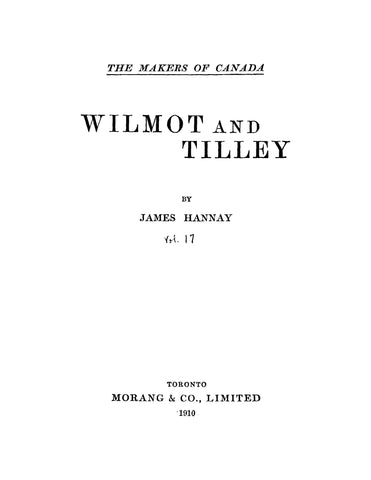
WILMOT: The Makers of Canada, Wilmot and Tilley
by James Hannay. 1910. 301p
Lemuel Allan Wilmot, a prominent figure in New Brunswick's political landscape, entered the House of Assembly in 1835, encountering opposition from the governor and the Family Compact. Despite his youth, Wilmot championed various reforms, advocating for responsible governance and constitutional changes within King's College. His efforts were met with challenges, particularly from entrenched interests and resistance from college authorities, hindering the implementation of his proposed reforms.
Wilmot's tenure in the House of Assembly was marked by his active participation in legislative debates and his unwavering commitment to pushing for reforms to enhance governance and education in New Brunswick. He faced significant obstacles in his quest for change, with the need to navigate through opposition and vested interests that sought to maintain the status quo. Despite these challenges, Wilmot's influence and dedication to reforming the political and educational systems in the province left a lasting impact on New Brunswick's history.
Through his advocacy for responsible governance and educational improvements, Wilmot played a pivotal role in shaping the political landscape of New Brunswick. His efforts to challenge the existing power structures and push for progressive changes reflected his commitment to advancing the interests of the people. Despite facing resistance and obstacles, Wilmot's legacy as a reformer and advocate for change endures, highlighting his significant contributions to the development of New Brunswick's governance and educational systems.
